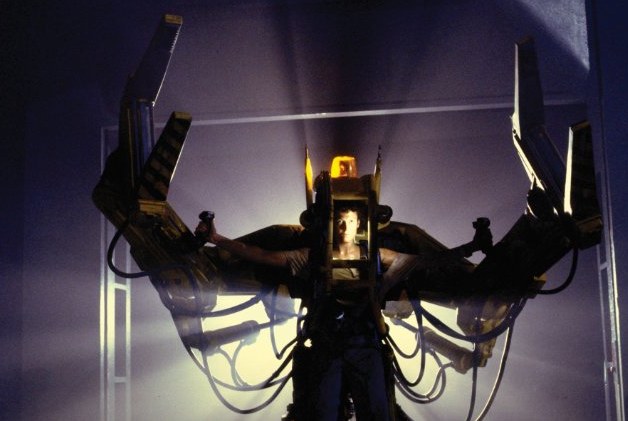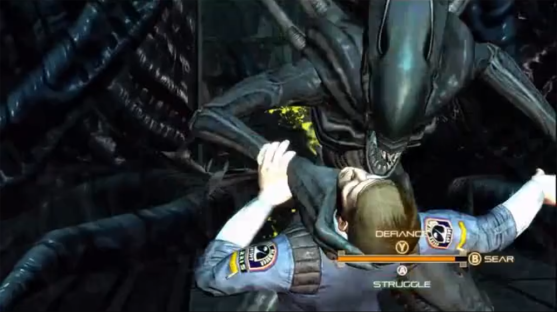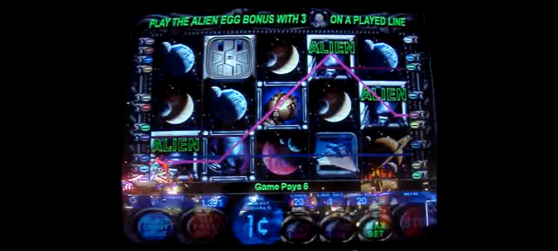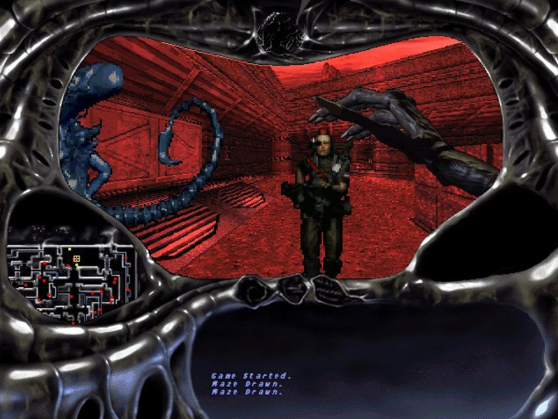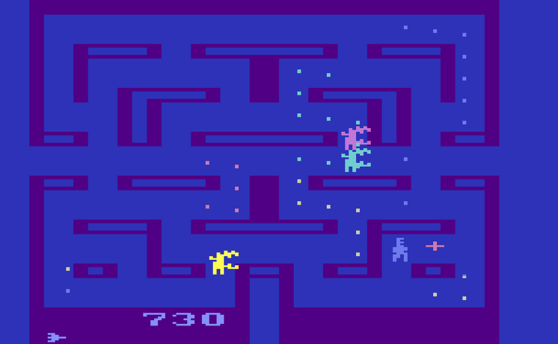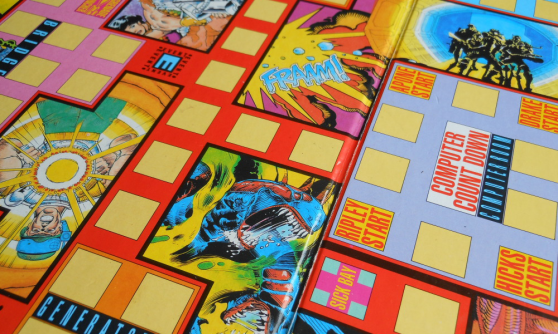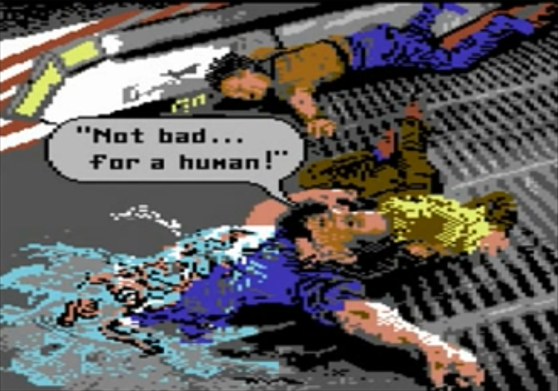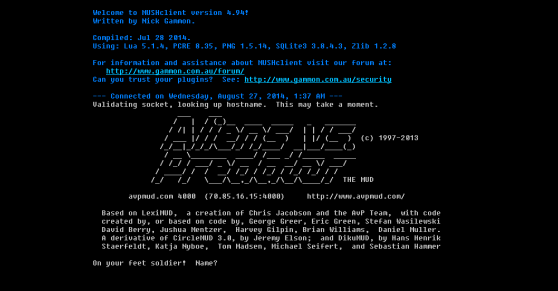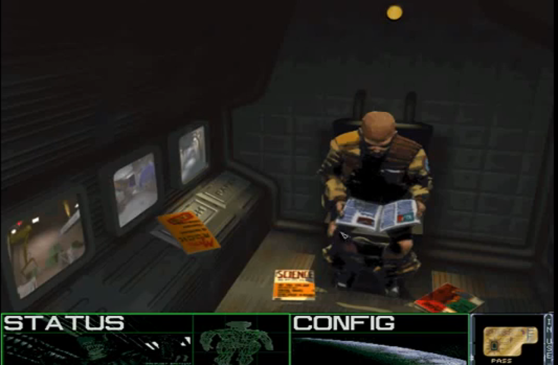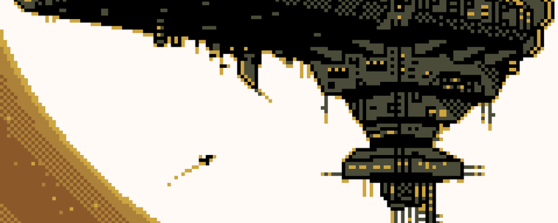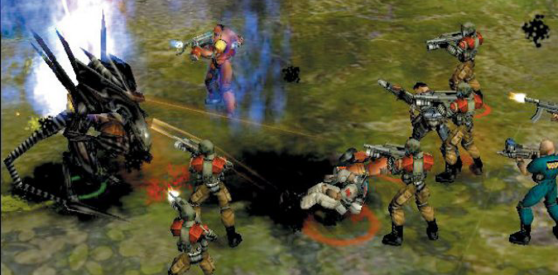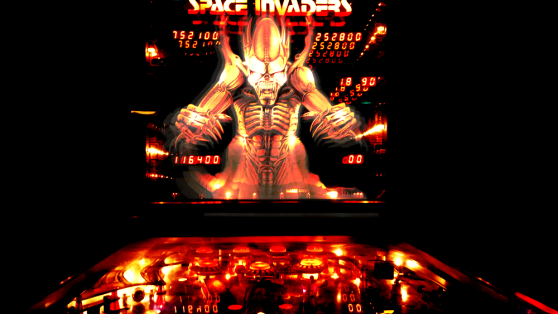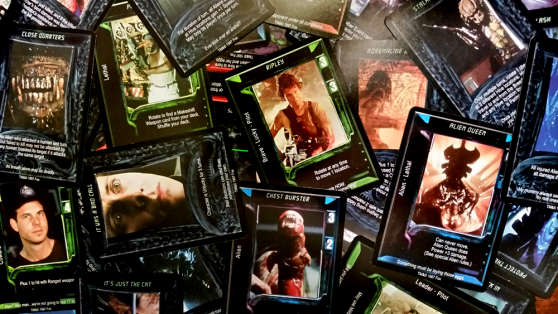Alien: Isolation has me hyped. I mean call-in-sick-to-work on launch day levels of anticipation. Good thing I am self employed; the only person who can fire me resides in my bathroom mirror.
Still, a the threat of embarrassing miscalculation looms when getting worked up into the nervous shits over Alien: Isolation. I could be committing the most damning of game media’s school yard faux pas: public excitement over pop trite.
For Part 2 on the best games in the Alien series, click here.
To alleviate my fears, I plunged into the past Alien releases head-first to see how the license has fared in the video game medium. After two months of nonstop playing through a towering pile of games, I felt I had to share what I experienced. I found a lot of bad, a healthy amount of good … and a shocking dose of weird.
Today, we’re going to set our motion trackers to “bad, canceled, and odd-yet-cool.” These are the releases that every fan of 20th Century Fox’s space monster should know about but may want to avoid, either because these games never saw the light of day, are not obviously available, or … well … are just horrible.
Aliens (Famicom Disk System/MSX, 1987)
Developer: Square
Publisher: Square
Three things from the ’80s that should’ve gone great together: Aliens, Square, and the Nintendo Entertainment System. Well, if we want to get technical, not so much the “NES” as the Famicom Disk System, a floppy disk drive attachment for the Famicom.
There was an official release of the game available in Japan on the MSX, but the Famicom version was considered lost. That is, until a very generous collector by the name of “Yuki” got a hold of a rare Famicom Disk System floppy containing a version of Aliens and dumped the ROM on the Internet.
This incredibly rare Aliens game features Ripley shooting facehuggers in a bland-even-for-its-time side-scrolling shooter. If you want a really great 8-bit Aliens-like experience, I suggest sticking a Contra cart in your NES instead.
Aliens: Crucible (PC, vaporware)
Developer: Obsidian Entertainment
Publisher: Sega
Aliens: Crucible was shaping up to be an ambitious third-person action-RPG. Players manage a group of workers inside an unnamed facility, which is being overrun by a xenomorph invasion. Each character in the group has their own strengths and weaknesses based off of what their role was on the work site. Details on what those roles are and how they worked into the overall design are scarce, but it is obvious Aliens: Crucible wasn’t going to be yet another group of Colonial Marines leaping into a bug hunt.
In 2009, Sega decided to cancel the project and instead focus on Aliens: Colonial Marines. In hindsight, that was a bad decision.
Making the cancellation even stranger is Obsidian Entertainment’s claim that Aliens: Crucible was close to completion. The industry is littered with canceled and unfinished projects, but it isn’t the norm to see something receive the ax when it is close to going gold.
Titillating fans of the franchise even further, someone leaked a 13-minute video showing off gameplay from a late milestone version. It sucks to think about this potentially cool and near-complete concept is in stasis on some random Sega and Obsidian Entertainment hard drives.
Alien Slots (slot machine, 2003)
Developer: IGT
Publisher: IGT
I hate gambling games. Not because I am trying to be a morally sanctimonious twit, but because in the end, no matter how clever the mechanics, they are obligated to end with a horribly lopsided luck component.
I’m also a raging hypocrite, because I dumped about 100 bucks into one of these Alien slot machines during my honeymoon in Las Vegas.
IGT’s Alien plays like most modern touchscreen slot machines. You have a five-reel, three-row set up with up to 20 lines to wager on. Match up any of the lines with three or more similar symbols and you receive a pay out. Alien also features a couple of bonus modes, such as an Alien Hunt section that has you facing off random creature encounters for extra credits. It also has an egg section where you are opening Alien pods for bonus credits, while trying to not pick the one egg containing the facehugger.
It’s bizarre to think that this would be a good casino theme, but gambling has obviously changed from being a vision of grandpa’s smoky riverboat-themed card den to something with an all-encompassing, theme park-like appeal. That includes a modern arcade-style vision, with games licensing popular franchises. If you’re going to park your ass at a slot machine and gamble the minimum amount of nickles per hour trying to qualify for free drinks at the casino, why not do it sitting in front of a theme you enjoy?
Aliens Online (PC, 1998)
Developer: Mythic Entertainment
Publisher: Kesmai Corporation
During the Internet’s infancy, a lot of bets were being made on dodgy business ideas tied to the information superhighway. As history shows, losers outnumbered winners. This was true for the PC game industry and the several online-games-as-service marketplaces that became popular during the time.
Services like GameSpy, M-Player, and Heat.net offered their players a gated community of game servers and chat rooms. GameStorm was one such provider that ran with a paid membership model ($9.99 a month), which gave customers not just an avatar and a list of Quake servers to connect to but also exclusive game content from Mythic Entertainment as well.
One of those offerings was Aliens Online.
Playing as either an Alien or a Marine, participants fought an interspecies war in a 2.5D first-person shooter world. Aliens were quick and silent and lacked ranged attacks. Marines had superior firepower but were slow and easy to locate.
Aliens Online, unfortunately, was riddled with balancing issues and bad level design. Some maps contained obvious spawn kill spots, enabling one group to slaughter players as they were entering the game. Marines were given extremely overpowered tools such as auto-aiming smart guns and land mines that were instant kills for Aliens but did minimal damage to human players.
Ancient ’90s computing technology and Internet infrastructure and these issues worse, resulting in incredibly laggy connectivity.
A year after Alien Online’s launch, Electronic Arts bought GameStorm. In 2001, the giant publisher shut down the service. A single-player version of Aliens Online can be found if you dig deep enough, but the online component, along with GameStorm’s servers and service software, is locked away in a closet at EA.
Alien (Atari 2600, 1982)
Developer: Fox Interactive
Publisher: Fox Interactive
One of the earliest examples of an executive giving the “just slap the movie label on a cart and have it on shelves before Christmas” order for a movie-to-game tie-in. It beats E.T. for the Atari 2600 by a mile just for the fact that it is a playable game. Granted, it is a bizarre and confusing Pac-Man clone with a little bit of Frogger thrown into the mix, but still … I stand firm: It’s a playable game.
Operation: Aliens — Combat Game (board game, 1993)
Publisher: Peter Pan Playthings
The Alien franchise dodged a pop-culture bullet when a kids Saturday morning cartoon featuring the lovable homicidal space bugs died. Putting the brakes on an expensive, multifaceted cartoon and toy line campaign is not so much like coming to a gentle halt in a Prius, but more like putting all of your weight on the emergency stop cord of a high-speed 100-car locomotive. Some licensed products just wind up off the track, gliding past the engine, and rolling into public consumption regardless. Our example of that is Operation: Aliens — Combat Game.
Players take the role of one of four Colonial Marines: Hicks, Apone, Drake, and Ripley (… wait … Ripley is a Colonial Marine?!?). Their mission is to roam an abandoned ship crawling with xenomorphs, locate the self-destruct code, and destroy the space freighter. The twist is that the marine players are working against each other as opposed to cooperating. So the winner is the marine who destroys the ship with his squadmates inside? They should rename this game, “It’s a cold world, kids!” or “The only one that counts is No. 1”
Aliens: The Computer Game (Commodore 64, 1986)
Developer: Activision
Publisher: Activision
Aliens: The Computer Game is a big-budget (for its time) compilation title (see the Nintendo Entertainment System’s Golgo 13, The Adventure of Bayou Billy, and PlayStation’s Incredible Crisis). Each minigame plays out a scene from James Cameron’s summer blockbuster.
This means that you get to fly through rings (à la Superman 64) while piloting the dropship from a first-person perspective down to LV-426. You then coordinate the Colonial Marines through the complex via different monitor screens to search for survivors and eventually escape back to the USS Sulaco. You finish by facing off against the Alien Queen in a power loader.
The appearance of Activision’s Aliens on this list isn’t because it’s horrible or weird, but at the same time, it’s not on my favorites list either. As with a lot of compilation-designed titles, Aliens falls into that trap of being a collection of mediocre experiences instead of a game with a singular focus. Even if a portion of the game is good, it’s likely you have to play through a lot of “enh” to get there.
Hardcore fans who own a Commodore 64 should load this one up. Everyone else isn’t missing much that a Let’s Play video won’t provide.
Aliens versus Predator: The MUD (PC, 1997)
Developer: Chris Jacobson/AVP Team
Publisher: N/A
Now we’re neckbeard-deep into some seriously antiquated online gaming.
During a time when the Internet was still young and innocent, Multi-User Dungeons (MUDs) were crazy popular with anyone that had Internet access, knew their way around a Telnet shell, and had a functioning imagination. MUDs play like an online version of an Infocom text adventure game, where every room is described in great detail via text. A popular MUD could contain hundreds of players interacting at the same time, making the genre the grand daddy of massively multiplayer online games like World of Warcraft.
The Internet use to be packed with MUD servers, all offering their own unique text-adventure world. One I remember vividly from the later half of the ’90s is Aliens vs. Predator.
What should come as completely unsurprising to those following along, you take the role as either a Marine, Alien, Synthetic, or Predator. You should also know what the objective is: slaughter any player you run into associated with a rival race. In this case, however, your survival depends on having a superior words-per-minute typing speed.
What is shocking, to me at least, is that the server for Aliens vs. Predator: The MUD is still up and running! Find yourself a solid Telnet client, perhaps something free and MUD friendly like MUSHclient, and point them toward avpmud.com:4000. Just make sure to read the rules and information on the official site before diving in.
Aliens: A Comic Book Adventure (PC, 1995)
Developer: Cryo Interactive
Publisher: Mindscape Inc.
If a mid-’90s point-and-click Aliens game sounds like a boring concept to you, give yourself a pat on the back, because you’re absolutely gawd-damned right.
Aliens: The Comic Book Adventure is a frustratingly plodding and tedious excuse of a game. It captures all of the design tropes that made the point and click genre’s golden era come to a painful (and in the case of titles like Aliens: The Comic Book Adventure, welcome) end. That the majority of the game feels like arbitrary busy work such as keeping characters fed and roaming miles of empty hallways, with a weak narrative that suggests that the nonsensical bullshit your characters are doing is for nothing, makes it clear why the genre wound up placing itself into the ghettos of gaming for the next 10 years. Even the Aliens seem too embarrassed to actually show up, as their appearance is scarce at best.
Like a turd desperately trying to cling onto a diamond, the narrative is loosely attached to the Darkhorse Comics miniseries Aliens: Labyrinth. As if to spit in my eye as the final insult, Aliens: Labyrinth happens to be one of my favorite Aliens based graphic novels. Sit through a Let’s Play video if you need to experience this thing. For your sake, don’t actually try to play it.
Aliens: Thanatos Encounter (GameBoy Color, 2001)
Developer: Crawfish Interactive
Publisher: THQ
A Colonial Marine transport ship is making a return trip back to Earth when it receives a distress signal from the freighter known as Thanatos. Our heros are woken out of hypersleep and ordered to dock the ship. Surprise! The place is overrun with xenomorphs.
From a top-down view, players investigate the Thanatos and attempt to rescue survivors, while avoiding becoming Alien hosts. We’re given a handful of Colonial Marines to manage, all with their own speed and stamina stats.
Soldiers also have two arms that are equipable with any combination of objects. Allowing our marines to either dual gun it for more firepower, or use a combination of firearm and motion tracker to play it a bit more safe.
Another cool detail is that if a soldier’s health runs out, they are considered captured. When the next marine in the group is leaps into the fray, you have 200 seconds to locate their companion and have them rejoin the squad before their Alien host bursts.
I was surprised by how much creative thought was put into this, and I really like the concept. A “but,” however, lurks in the background.
The problem is that it is too ambitious for the platform it runs on. The limitations of the GameBoy Color drag down the experience with awkward hit-boxes and dumb artificial intelligence. It’s a design that desperately needed to wait out for the release of the GameBoy Advance.
Aliens versus Predator: Extinction (PlayStation 2/Xbox, 2003)
Developer: Zono Inc.
Publisher: EA
Aliens versus Predator: Extinction is a wonderful idea executed in a horrific way. An Aliens vs. Predator-themed real-time strategy game (great!), designed for the PlayStation 2 and Xbox controllers (ugh, what?!?). Someone out there, please…revisit this idea. Just make sure to design it for a platform that is much more RTS friendly (mouse/keyboard or touchscreens).
Aliens: Colonial Marines (Xbox 360/PS3/PC, 2012)
Developer: Gearbox Software
Publisher: Sega
During the run-up to Aliens: Colonial Marines, beautiful images of footage peppered industry press goons before release. Demos of atmospheric dynamic lighting and incredibly detailed environments made everyone hyped as hell for Sega’s next video game bug hunt.
And upon release, Colonial Marines blew everyone’s minds … for all of the wrong reasons.
Aliens: Colonial Marines has become the modern example of when we hype a game for its eye candy, and upon release, it delivers a real-time visual experience that is short of the promises. Critics and fans pounced on the game something fierce for not meeting expectations, turning this release into a huge PR disaster for Sega.
Two years later, the drama surrounding Aliens: Colonial Marines’ legacy as a marketing blunder is still ongoing. Fans filed a class-action lawsuit against Sega and Gearbox for false advertising. In turn, Sega is suing Gearbox in order to get the studio to pay $750,000 of the former $2 million false-advertisement settlement. Sega claims that the developer was at least partially responsible for the marketing debacle, so it should pony up for some of the damages.
If whoever was responsible didn’t promise the moon, Aliens: Colonial Marines could’ve been an average release that would’ve been lost in the used bins, perhaps obtaining a cult following several years later. Instead, it has become a cautionary lesson that should appear in every “Game Industry PR/Marketing 101” syllabus.
Space Invaders (pinball, 1980)
Developer: Bally Manufacturing
Publisher: Bally Manufacturing
The pinball industry in the ’80s was a highly competitive business. Not only were several big manufacturers trying to cut each other out of the market, but they were also competing against a new video game craze that was beginning to eat into their real estate in the arcades.
Bally tried to take advantage of video game’s becoming a significant part of popular culture by designing a table around Taito’s hottest title: Space Invaders. Unfortunately it looks like someone at Bally wanted to produce an Alien pinball machine instead.
Paul Faris’ (Centaur, Paragon, Xenon) artwork on the finished pin absolutely screams H.R. Geiger and not so much pixelated invaders from outer space. There’s no denying what the creature on the backglass is supposed to be, even with the small differences such as adding eyes to the monster. 20th Century Fox noticed and did what every corporation does when it gets pissed off: it sued the crap out of Bally.
Bally was forced to stop production on Space Invaders, but by then the damage was done. 11,000 units had made it off the assembly line and into the streets by the time the cease and desist came down.
Alien 3: The Pinball Game (pinball, vaporware)
Developer: Williams Electronic Games, Inc.
Publisher: Williams Electronic Games, Inc.
Fast-forward the pinball industry into the 1990s, when manufacturers had a serious hard-on for attaching movie licenses to their games. Williams pinball designer Barry Oursler (Dr. Who, PinBot, Who Dunnit?) and artist Mark Sprenger (High Speed, The Getaway: High Speed II, Diner) were assigned to design a game around the upcoming Alien sequel: Alien 3.
Production for the film was still early and had not yet become the complete clusterfuck it would become infamous for in Hollywood lore. The version of the script Oursler and Sprenger were designing around was not about a bald Sigourney Weaver wandering a prison colony, but a gigantic manmade wooden planet occupied by religious monks.
Oursler and Sprenger were far along into designing the game when word came from 20th Century Fox that film production would be delayed by an entire year. Williams didn’t want to waste a perfectly good game over a delayed movie license, so 20th Century Fox offered them Bram Stoker’s Dracula instead.
Bram Stoker’s Dracula would go on to become a cult hit among hardcore pinball fans. According to Oursler, very little was altered to make the original Alien 3 game design fit the new theme. So if you happen to see one on location in a bar or bowling alley, give it a try. Just try to imagine that Winona Ryder is a bald Ripley and Gary Oldman is an Alien.
Aliens vs. Predator: The Collectible Card Game
Developer: Precedence Publishing
Publisher: Harper Prism
The mid-’90s was a time where everyone in the pen-and-paper world was desperate to get a piece of Magic: The Gathering’s success. Publishers urged designers to chug out clones of the collectible-card game formula, which could be married to recognizable pop culture licenses.
This caused a saturation of trading card games with various themes, with Aliens vs. Predator: The Collectible Card Game being one example.
Its design is structured like a hybrid card-board game, where opponents play as one of the three species and build out the environment from their headquarters with location cards. When these hallways and corridors eventually connect, the action starts. Aliens want to capture other creatures and breed. Predators want to kill everything that moves and collect their hunting trophies. Marines just don’t want to die horribly. A combination of dice rolls and card abilities regulates combat.
Aliens vs. Predator’s banishment into obscurity comes from a few issues. For one, it adopted a design that relied on creating specialized decks that revolved around one species (one-third of the game), which is counter to the adaptability of the collectible card game formula. If you buy a booster pack and only have one species-based deck, you risk two-thirds of those new cards being unplayable.
The game is also absurdly unbalanced in its starter form. Predators are armored dump trucks compared to the Alien and Marine factions. Cards that would allow the other two species to play around that handicap are considered rare.
Finally, even if you have all of the cards, that doesn’t mean anyone is playing the thing. With so many products competing, if a multiplayer game didn’t catch fire and crack the top 10 in popularity, it won’t have the player base to flourish.
Aliens vs. Predator is a victim of being the wrong game at the wrong time. As a standalone product with expansions, such as Dominion and Resident Evil: The Deck Building Game, the concept has promise. Instead, it’s an obscure oddity of the 90’s.
My digging into the Alien franchise doesn’t stop here. Today, I dragged out some of the weird, cool, and downright horrible entries in the Alien games history. Tomorrow, I pull out the games I feel any fan should play
VentureBeat's mission is to be a digital town square for technical decision-makers to gain knowledge about transformative enterprise technology and transact. Learn More
